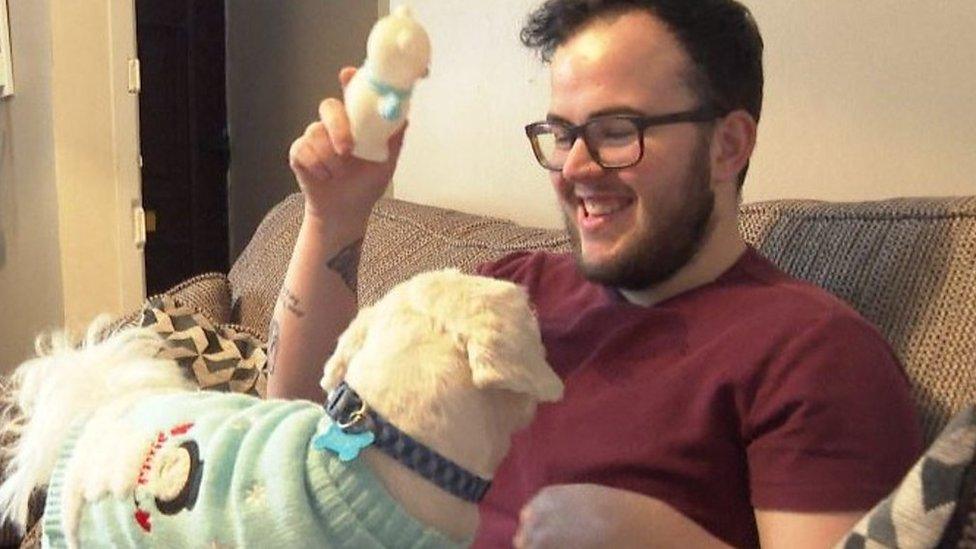Transgender pupils: No increase in support queries at NI schools
- Published
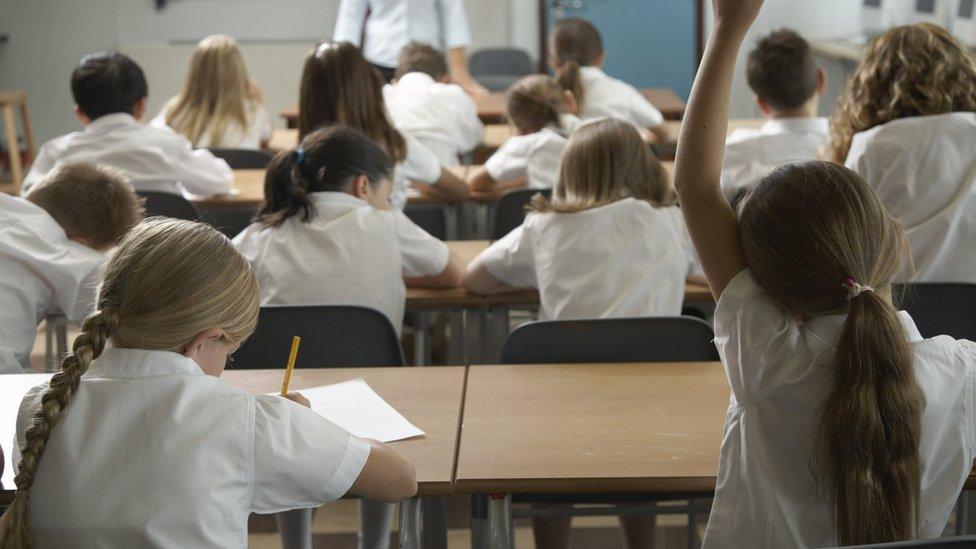
EA staff also told BBC News NI that there had not been a dramatic rise in requests for advice from schools in recent years
The Education Authority (EA) says it receives about three queries a month from schools about support for transgender pupils.
Staff at the EA's Equality and Diversity Unit said there had not been a dramatic rise in requests for advice from schools in recent years.
The authority has previously published detailed guidance for schools on how to support transgender pupils.
That guidance had initially faced criticism from some EA board members.
It is non-statutory but covers things like uniforms, naming, use of toilets and changing rooms, access to sports and admissions to single-sex schools.
There are no reliable statistics on the number of transgender people in Northern Ireland.
Recent Northern Ireland Life and Times Surveys (NILT) have suggested about 0.1% of people in Northern Ireland are transgender.
According to a freedom of information request response published by the Belfast Trust in September 2021, 522 adults were on a waiting list for its Gender Identity Clinic.
Under 18s are referred to the Knowing Our Identity service, also run by the Belfast Trust.
According to the same FOI response, 62 under-18s were referred to the service in 2018/19.
'Actively seeking support'
However, the EA guidance was originally published due to an increasing number of requests for advice from schools.
Adele Davidson, an equality and diversity manager at the EA, recently told a British Council seminar on inclusion and diversity in education, external that, "on average we would be receiving probably around three queries a month from schools at all age levels".
Ms Davidson said schools were "actively seeking support from a pastoral point of view, a wellbeing point of view".
"Obviously some schools are perhaps more progressive or more equipped to deal with the issues," she continued.
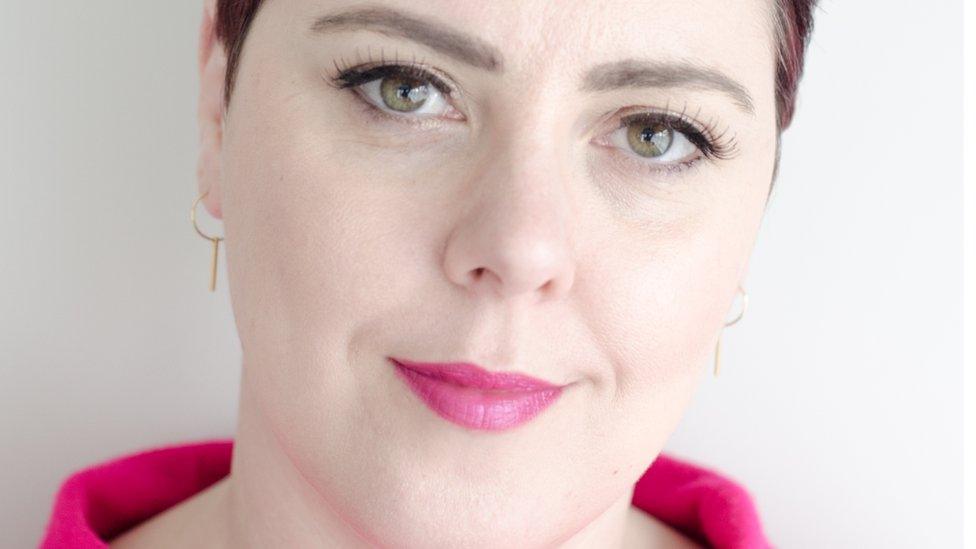
Emma Patterson says calls for advice are usually highest at the start of term
Emma Patterson is also an equality and diversity manager in the EA and she told BBC News NI that calls from schools or parents for advice on transgender issues were usually highest at the start of term in September.
"From schools, it is often 'we need to talk about facilities,' or 'we need to talk about uniforms,'" she said.
"They really range from a school asking: 'Is this ok?' to a school saying: 'I need some support, I don't know where else to go'."
"Sometimes it can be a parent just saying: 'My child wants to wear trousers from now on'."
"Most of the calls I get are post-primary so you really are talking 11 years and up and even then a lot of the pupils are 15 years and up."
'No knock-on effect'
Ms Patterson said it was possible some principals were seeking advice from other principals or trained EA school governance officers rather than calling her directly for advice.
However, she said that despite increased focus on transgender issues in the media in recent years she had not noticed a rise in queries from schools.
"I don't think it has increased dramatically at all," she said.
"We haven't seen a knock-on effect like that.
"Our three school governance officers might be dealing with queries first but I don't get a feeling from them that they're overrun."
Some former pupils have previously spoken to BBC News NI about the experience of transitioning at school.
Research published by the Department of Education (DE) in 2017 reported that two-thirds of lesbian, gay, bisexual and transgender (LGBT) young people did not feel welcomed or valued in their post-primary school.
Related topics
- Published28 October 2019
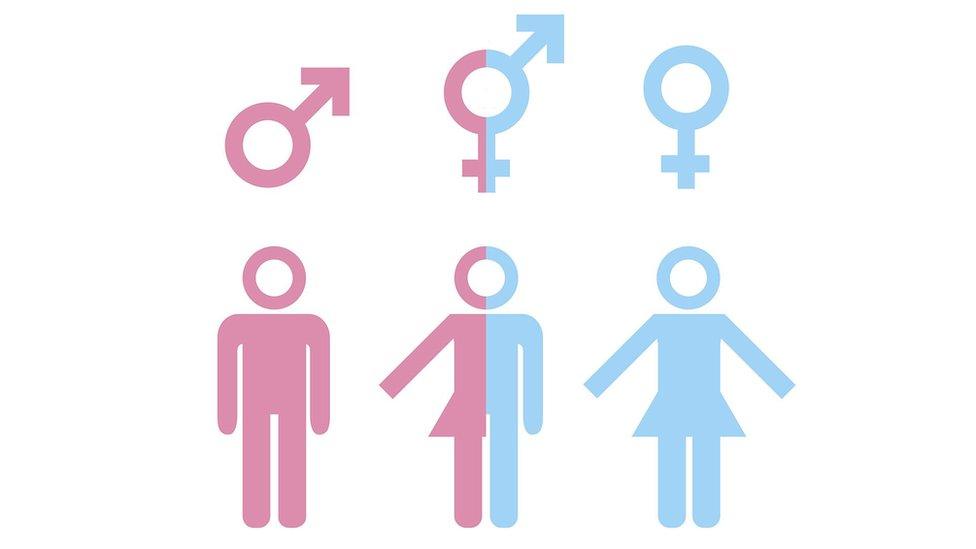
- Published17 October 2019
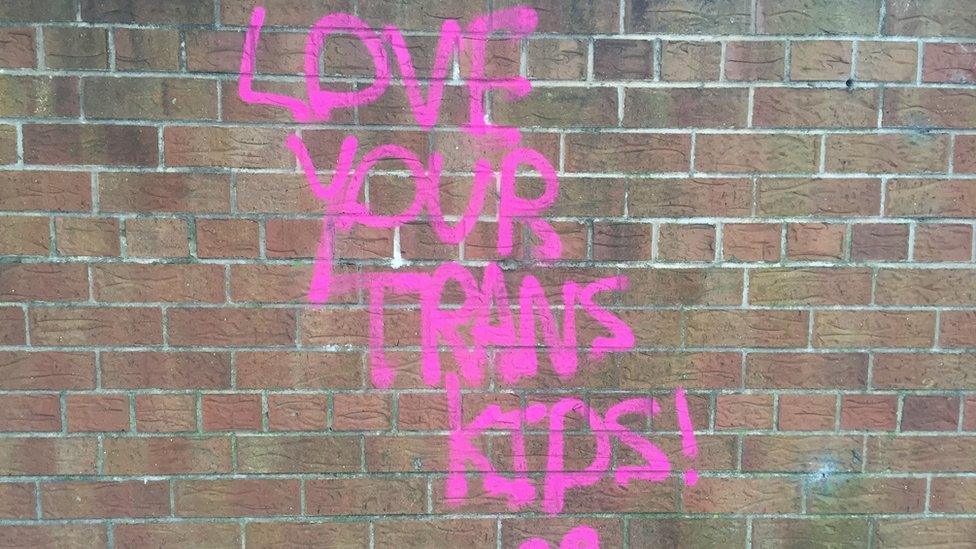
- Published15 September 2017

- Published10 November 2019
